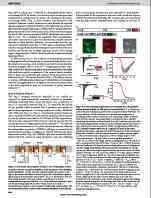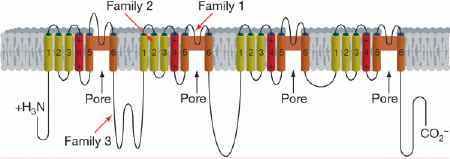Guest Post by Imran Nasrullah

 Recently, the New York Times reported on the case of a 10-year old boy from Lahore who could perform remarkable feats – like walking on burning coals and passing knife blades through his arm – without exhibiting any sign of pain. According to the NYT:
Recently, the New York Times reported on the case of a 10-year old boy from Lahore who could perform remarkable feats – like walking on burning coals and passing knife blades through his arm – without exhibiting any sign of pain. According to the NYT:
Geneticists following up the case of a 10-year old Pakistani boy who could walk on coals without discomfort have discovered a gene that is central to the perception of pain. The boy lived in Lahore, Pakistan, and was well known to the city’s medical authorities because he would come to the clinic asking to be patched up after his street theater. In these exhibitions, he would pass knives through his arms and walk on burning coals without feeling pain.
A research team led by C. Geoffrey Woods, a physician at the Cambridge Institute for Medical Research in Cambridge, England, reports in the journal Nature that team members have identified a genetic defect in some of the boy’s relatives who are also unable to feel pain. The defect inactivates a gene that is critical to the body’s perception of pain. The gene is obviously an attractive new target for drug developers seeking to eliminate pain.
Researchers following up met other members of this family (the Quereshis) in Pakistan comprising individuals with this same unique ability: “None knew what pain felt like, although the older individuals realized what actions should elicit pain,” say researchers.
It turns out members of this clan have a key mutation in the gene SCN9A (located on chromosome 2-specifically, chromosome 2q24.3) that totally blocks the perception of pain. SCN9A encodes for a sodium channel receptor that regulates. It has been known that a different mutation in the same gene produces the opposite feeling- an intense searing sensation responsive to mild warmth- known as Burning Man’s Syndrome. To be immune from pain, requires inheritance of a single copy of the mutation from both parents (homozygous recessive), a phenomenon more likely to occur in clan based societies where intermarriage among the clan is frequent.From a pharmacoeconomic perspective, this discovery is huge as pain management for back pain alone consumes 20% of US health costs and 1.5% of US GDP! Drug developers could start generating new medicines- agonist[s] specific for this subunit might act as a ‘total analgesic’ with no side effects – thereby, better managing pain.
Let’s hope that drug companies capitalizing on this discovery will make such medicines affordable to those in poor countries who live with pain without recourse.
Imran Nasrullah heads business development and IP liscensing at a pharmaceutical company in the United States.



















































Perhaps we should talk a bit about braindrain in Pakistan. How can this be stopped?.
actually thats not true. aku does a lot of basic science research.
i am at Johns Hopkins and I did my MBBS from AKU. I read that paper. AKU has all the infrastructure to do that sort of basic science.
check out AKU’s wikiepdia entry for recent discoveries
[quote comment=”19013″]I hope we can have more posts on HOW to create a research environment in Pakistan. Education has to be key, but it is not just about money, its also about thought out policies. Unfortunately most univeristies in Pakistan do NOT see themselves as research places, they see themselves more as teaching places. There is a difference and society needs to recognize it and invest seperately in research environment. There are too many institutes of this and that, but too few who REALLY do any research.[/quote]
Yes, I agree with that thought. There is a major project underway called LUMS SSE which is being billed as Pakistan’s first major research institution (I’m not in any way affiliated). It seems like some regular posters on this site are actually part of their advisory board.
AKU does a good bit of research but their research is more geared towards public health issues; i.e. they do not concentrate on basic science research.